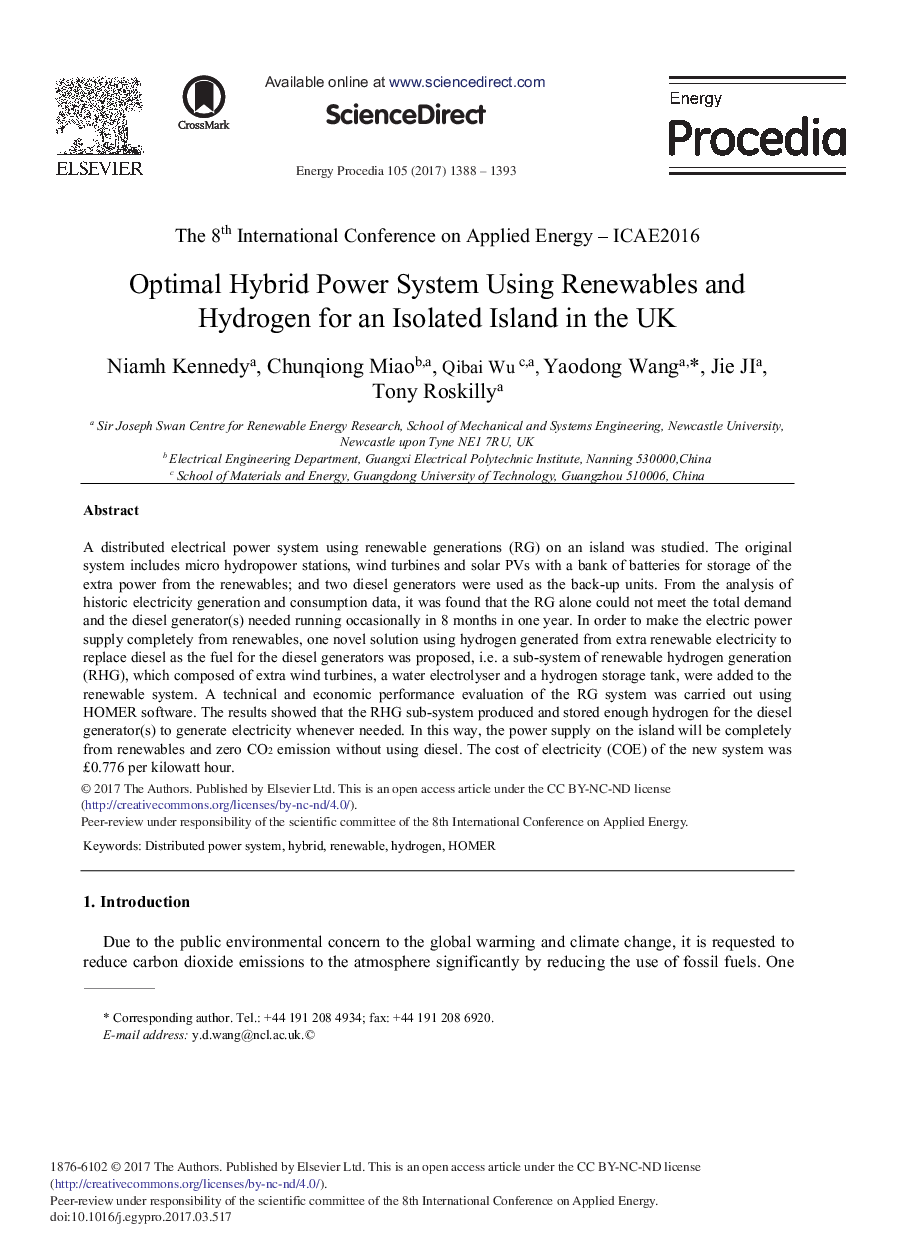ترجمه فارسی عنوان مقاله
سیستم قدرتمند ترکیبی با استفاده از انرژی های تجدید پذیر و هیدروژن برای جزیره جدا شده در انگلستان
عنوان انگلیسی
Optimal Hybrid Power System Using Renewables and Hydrogen for an Isolated Island in the UK
| کد مقاله | سال انتشار | تعداد صفحات مقاله انگلیسی |
|---|---|---|
| 140969 | 2017 | 6 صفحه PDF |
منبع

Publisher : Elsevier - Science Direct (الزویر - ساینس دایرکت)
Journal : Energy Procedia, Volume 105, May 2017, Pages 1388-1393
ترجمه کلمات کلیدی
سیستم قدرت توزیع، ترکیبی، تجدید پذیر، هیدروژن هومر،
کلمات کلیدی انگلیسی
Distributed power system; hybrid; renewable; hydrogen; HOMER;

